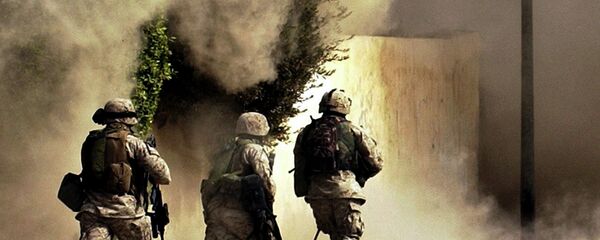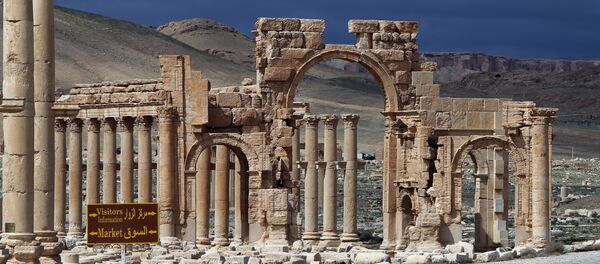"Probably everybody will agree with me that Iraq under Saddam Hussein and Libya under Muammar Gaddafi were not perfect places: the human rights records of these two leaders were probably very different [from those of Western countries], but the Middle East is not the US Mid-West. And by entering the Middle East with major forces, Americans [have] always caused more problems than they have solved."
Eskin voiced his hope that the US does not expand its involvement, noting that "the experience of the American peacekeeping –of sending bombs instead of humanitarian aid, [has been going on for] too long in the Middle East, and the best thing for the Americans is to go home."
The expert emphasized that following the conflict in Libya, even "the US Congress totally opposed direct US involvement in Syria, and this is why we don't see it today…They have learned something and we just have to go with this line, to support them in not getting involved, because there's no positive experience of American intervention in such cases in the world. I can't remember [a single] one."
Solution to Middle East Crisis Must Involve Moscow
Asked to comment on Syrian-Iraqi cooperation, and possible US-Syrian cooperation in the fight against ISIL, Eskin noted "it's not a secret that there are talks between Washington and Damascus. And there was no opposition by the Syrian government for the [recent] American ground operation, by the way."
"But there is another important player here, and that is Russia. Russia still has a lot of influence in Iraq and Syria. Unless the Americans bring Moscow into this negotiation process, the job that the Americans are trying to carry on will be impossible. Russia is known for its close connections with Damascus, and there are still many people in Baghdad who look toward Moscow as [a country which] can assist in peacemaking. It's especially important now that the State Department understand [this]. It's not a time to hand out another portion of cookies…They have to change the tone, the style of talking to the Russian side. Together we can control the situation in Syria. If not, we will see hundreds of thousands more people killed there because ISIL is not going to be stopped by force alone. So, the sooner the better."
Western Hopes for Syrian Rebels Have Not Matched Up With Reality
Speaking about the need for achieving regional instability in the Middle East in general, Eskin stated that the problem is one of lack of stability. "The regimes in the Middle East are not stable at all. It's not only a matter of being democratic, totalitarian or authoritarian. It's not a matter of one's likes or dislikes. It's a matter of being stable… Unfortunately, one cannot trust any regime which is not based on solid ground. When the basis of power can be changed so quickly it's a problem for America and for Russia." Eskin noted that Russia's task now, in countries like Egypt, is to assist in the creation of "such a power structure that will carry on and will not be changed again in a few years."



